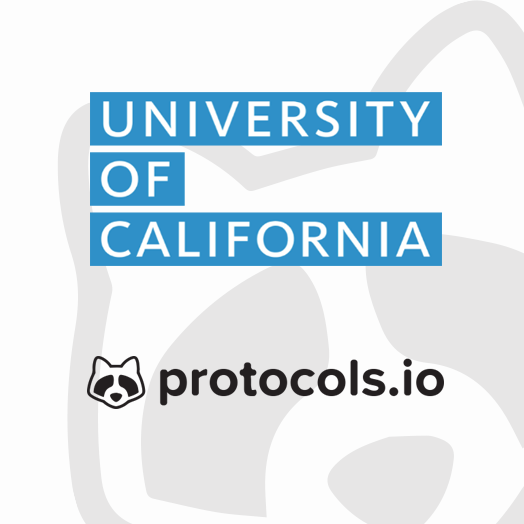
One of the serious barriers to reproducibility of research is the lack of detailed methods in published articles. As trainees leave a research lab, it is often impossible to identify precisely the steps of their performed experiments. As we look to tackle the various aspects of open access and open research, the University of California continues to explore how we can unlock the underlying methods and protocols used in lab experiments.
With this goal in mind, we are excited to announce a new pilot for UC-wide use of protocols.io — an open access repository for research methods. The pilot, which will run for a three-year period from June 1, 2019 through May 31, 2022, will remove all cost barriers and allow UC researchers to test the uses of protocols.io for private collaboration around method development and for use in classrooms. In the long term, this initiative should also increase the reproducibility and rigour of the research published by UC academics.
The protocols.io platform has deep roots in the University of California system. In addition, more than 10% of the researchers registered on protocols.io are from one of the UC campuses. Many of these researchers are using protocols.io in a private mode.
By launching this pilot, we hope to increase the managing and tracking of research methods on each campus, enabling better reporting and more reproducible publications from the UC research community. Below are some important details about the pilot and protocols.io. If you have any additional questions, please do not hesitate to contact the University of California Curation Center (uc3@ucop.edu) or the protocols.io CEO Lenny Teytelman (lenny@protocols.io) for more details.
1. What are the key benefits of the pilot for the UC community?
This pilot will focus on a major barrier to reproducible research: the creation and sharing of detailed methods in published articles (see here). We aim to chisel away at this barrier by having UC researchers identify precisely the steps of their performed experiments. The pilot should increase adoption of protocols.io for internal organization and tracking of research methods on each campus, and subsequently will lead to better reporting and more reproducible publications from the UC research community.
2. How does protocols.io work? How do I login?
The protocols.io platform includes a public repository of methods. All public content is CC-BY. Users can create, publish and read public protocols at no cost. However, there is a fee for creating private areas for method collaboration. This is included in the protocols.io Premium features. These features include private groups to organize, discuss, and collaborate around methods. The UC pilot will allow all UC faculty, students and staff to access these Premium features at no fee during the three year period. To sign-up, you just need to visit the protocols.io website and login using your UC email address (or login using ORCiD or another email address and click “verify” using your campus email).
3. What happens after the pilot?
There is no obligation for campuses or researchers to pay any fees. At the end of the pilot period, in the event of contract cancellation or non-renewal, both UC campuses and/or UC Premium users will have the option of paying for the individual and team accounts directly. Note that no additional private content will be allowed to be created within protocols.io without a paid subscription. The costs for Premium features are listed on the website.
4. How will non-UC collaborators be handled?
During the pilot, premium team accounts created by UC users will not be limited to UC members; academic or industry collaborators are free to join such private groups at no additional charge.
5. How reliable is protocols.io? Is the content archived?
All content created in protocols.io is licensed CC-BY. Public content in protocols.io is archived in CLOCKSS, and there is a free public API allowing a snapshot of the entire protocols.io public content at any time. PDFs and JSON files of all public protocols are also mirrored in the open and searchable GitHub repository. For private protocols, every researcher can export all of their protocols and records in bulk as PDF or JSON files; there is also integration with Google Drive, Drop Box, and Box for single-click export from protocols.io.
Tags: Open Access



